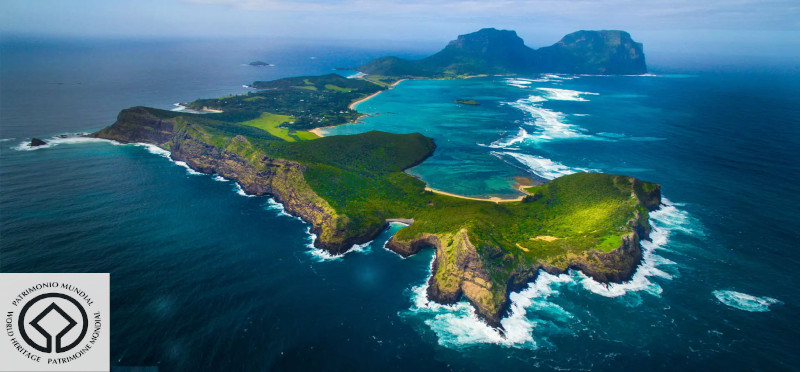
Coral bleaching has hit the southernmost coral reef which scientists believe is due to climate change.
In Detail :-
- World’s southernmost coral reef off the coast of Lord Howe Island in Australia was affected by rising temperatures this summer.
- It escaped severe bleaching in 2016 and 2017 that devastated the Great Barrier Reef.
- Scientists are worried that even remotest places such as this are bearing the brunt of global warming and climate change.
- The island is 600km away from Sydney and is a World Heritage Site.
- As per the scientists, 90% of the Lord Howe island’s inshore shallow lagoon reefs got bleached.
- However, the deep coral reefs of the regions which consist of rare species of marine animals found only in the place is not affected.
- The cause for bleaching is an increase in baseline temperatures due to climate change and elevated local temperatures this summer.
Also Read: – Death By Air Pollution – State of Global Air Report 2019
Corals and Bleaching :-
- Corals are a symbiotic species that depend on tiny photosynthetic algae for food.
- The algae make the coral polyps its home and the beautiful colors of the corals are due to the algae.
- The reefs built by corals get bleached when the surrounding water temperatures increase.
- Bleaching makes the coral to expel the algae thereby rendering it colorless. Hence, the term bleaching.
- In the majority of the cases, heavily bleached corals do not recover and die.
Importance of Corals :-
- Corals are known as the rainforests of the ocean with rich species diversity.
- They are the lifeblood for many marine species by providing food and shelter.
- They act as barriers to tropical storms and deadly waves.
- It helps in carbon and nitrogen fixing.
- It assists in nutrient recycling.
- Much juvenile fish grow in the corals, thus making them important for the fishing industry.
- Also, they generate huge amounts of income in the form of tourism.
Also Read:- SC Ultra Vires RBI’s Framework for the Resolution of Stressed Assets
Coral Reefs in India :-
- India is one of the major countries with vast areas of coral reefs.
- In the country, coral reef formations are present in Gulf of Mannar, Palk Strait, Andaman & Nicobar Islands, Lakshwadeep and Gulf of Kutch.
- Reefs in India are fringing and atoll types.
- Indian reefs too are facing threats of bleaching due to climate change.
- Scientists are trying to create new artificial coral reefs for the survival of marine species.
Global Threat :-
- It is widely accepted that the current climate change is due to anthropogenic reasons. This is largely affecting ocean ecosystems.
- World over, a large number of people are dependent on these ecosystems for their livelihoods, especially the coastal fishermen.
- Loss of corals means loss of fish production which will have a major impact on the global food value chain.
The only solution to the problem of climate change is for the world nations to act on reducing the emissions and reverse climate change.

Leave a Reply
You must be logged in to post a comment.